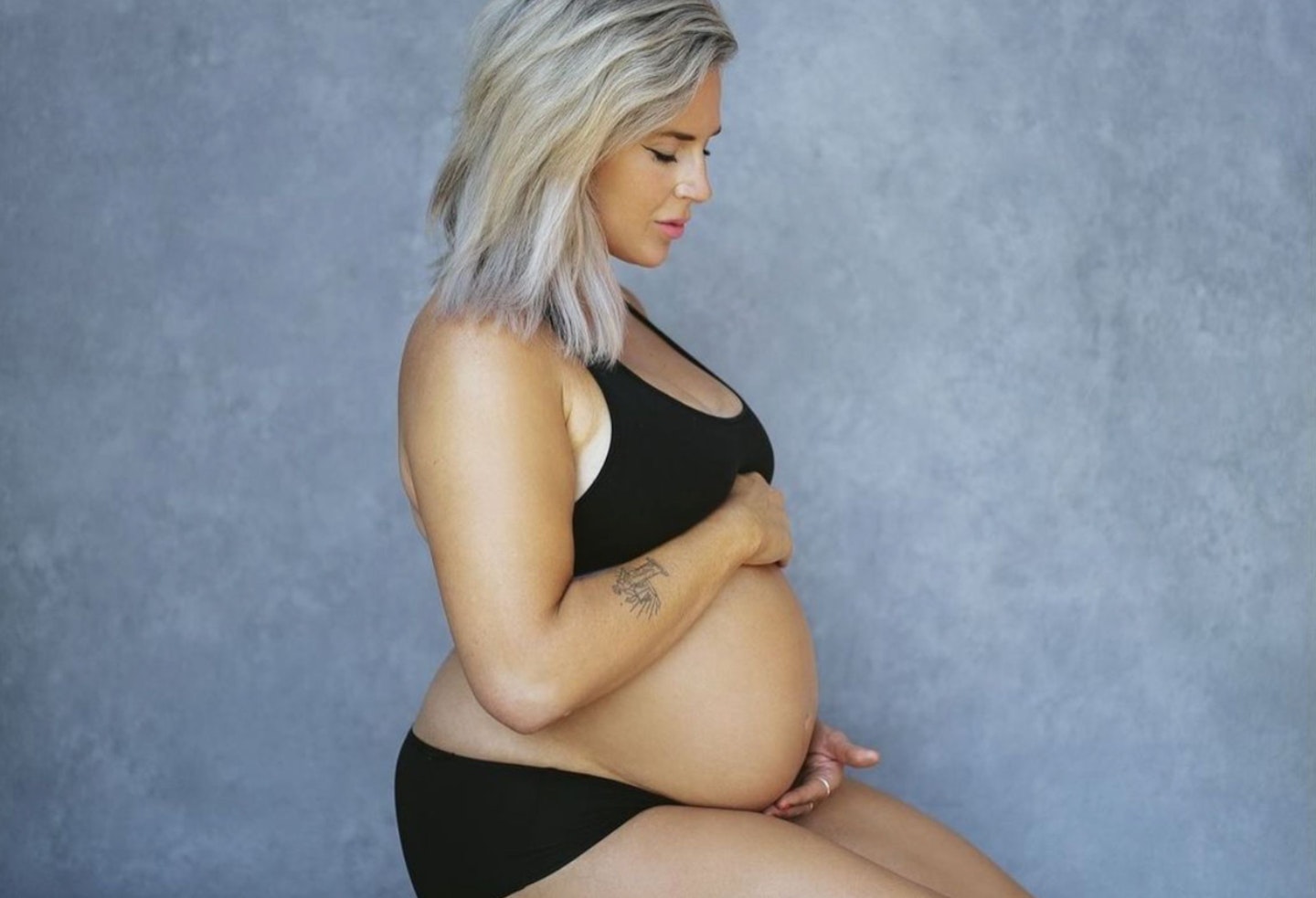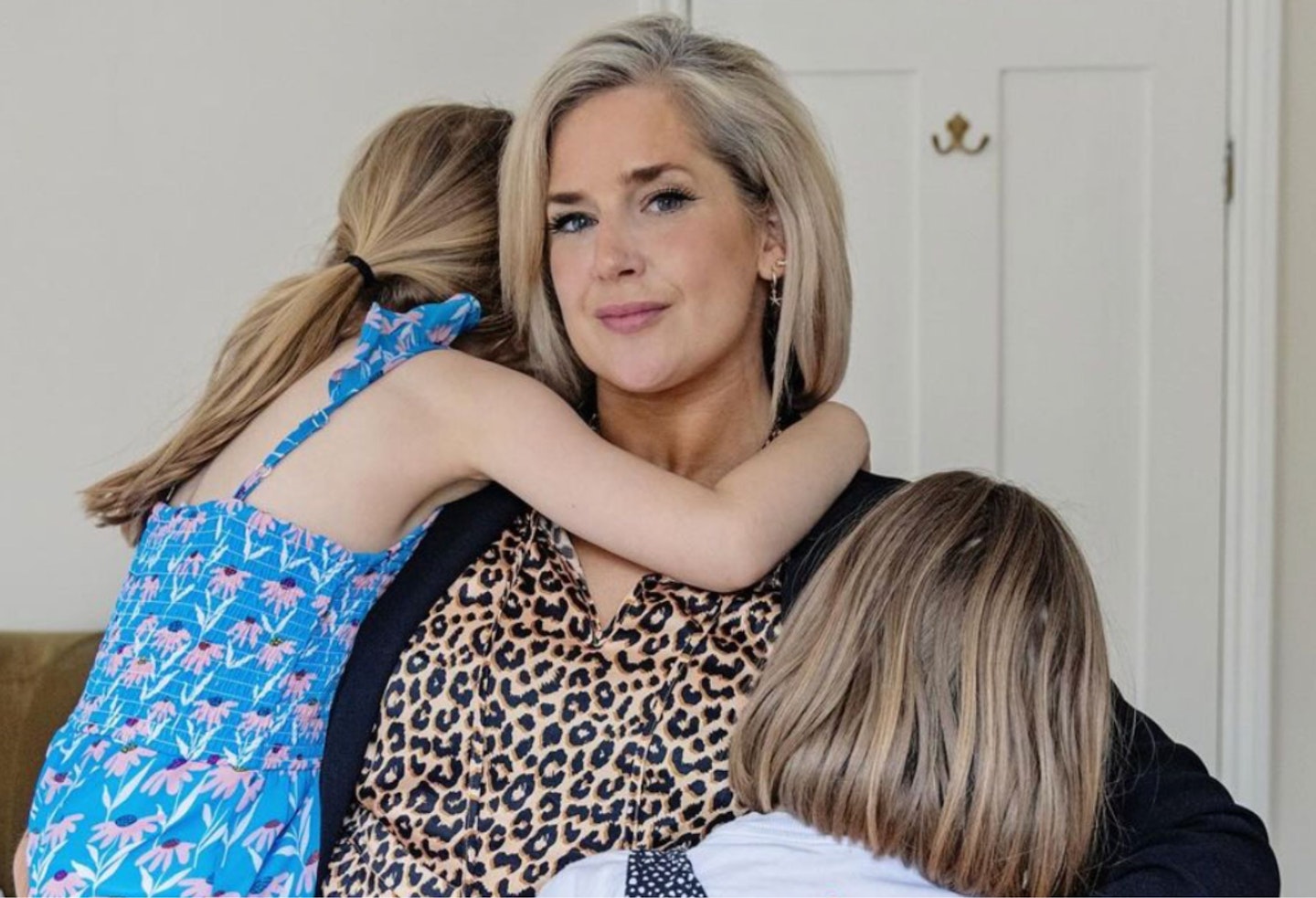Anna Whitehouse, better known as Mother Pukka, is that friend we all wish we had—always in your corner, ready to lift you up. With over 400,000 followers, it’s clear I’m not alone in feeling this way. She’s a fierce advocate for mothers everywhere, passionately fighting for maternal rights and speaking candidly about the struggles working parents face today. That’s what makes her such a relatable ally for millions of parents across the UK.
At 43, she’s breaking stereotypes by expecting her last child, all while navigating the heartache of past miscarriages. Anna’s not just about sharing her story; she’s actively championing the Flex Appeal campaign for flexible working arrangements for everyone.
Anna welcomed her baby girl on 24 October. Before Lola's arrival, we had a lovely chat with Anna. She opened up about her journey as a mum, the lessons she's picked up along the way, and the real-life challenges of balancing everything. She also shared why this pregnancy feels so special to her. We can’t wait to see what’s next for her and her beautiful family!
What’s it like to get ready for baby number three?
As Anna nears the finish line of her pregnancy, she’s feeling a mix of excitement and anticipation.
“I’m in my third trimester, and to be honest, it’s been quite a ride! I’ve been experiencing a lot of Braxton Hicks contractions, so I’m focusing on rest and trying to stay calm to keep her in a little longer. I’m really excited to meet her, though! At this stage, she could come any day, and I feel pretty calm about it, especially considering the chaos of having five kids—two of my own and two stepchildren—with another one on the way.”
How are you handling pregnancy at 43?
Reflecting on her earlier pregnancies, she says, “My first daughter is 11, and my second is 7. I was around 32 when I had my first and 36 when I had my second. This time around, being 43 feels quite different.”
Being pregnant at an older age comes with its own challenges. Anna shares her thoughts on the term “geriatric pregnancy,” saying, “The term can feel a bit harsh, but I try to remind myself it’s just a medical label. I prefer to think of myself as experienced!
Every pregnancy is unique, and at this stage in my life, I feel a deeper appreciation for the journey. Knowing this is my last pregnancy makes me cherish each moment, even when sleep is hard to come by. I’m grateful to be pregnant again, especially after experiencing loss.”
As for having more children, Anna says, “I feel this is it for us. We’ve decided [with her partner, Olly Bretton] that we’re done after this little one arrives, and I’m genuinely happy about that. It feels like the right choice for our family.”

How has baby loss and miscarriages shaped your view on pregnancy and motherhood?
“You never really recover from loss. You think of those little lives you named, the nursery you prepared, and the life you imagined for them. In medical terminology, words like ‘viable fetus’ feel so cold and clinical; they create a distance from that tiny life form. I've held on to the love I have for those babies just as much as I do for this one and my two that are here with me.
I want to educate my daughters about the realities of pregnancy. It’s not like achieving milestones such as landing a job or marrying a partner, where you have some control over the outcome. You choose who you end up with and how much effort you put into getting a house. But pregnancy and childbirth are a roller coaster ride. Nothing is certain until you hear that first cry.
This uncertainty has defined my experience throughout all my pregnancies. I can’t celebrate until I see someone holding their baby because premature celebrations can lead to profound pain if that little life is taken away. The grief that follows such loss only compounds the sorrow. So, I’ve learned to take each day as it comes, recognising that justified pregnancy anxiety often follows loss.
For many of us, checking for blood every day becomes a reality. If you experience bleeding, your mind goes to the darkest places, even though bleeding can be quite normal during pregnancy. It’s triggering for so many. I believe it’s essential to acknowledge the privilege of motherhood and express gratitude for even being pregnant. Celebrating milestones, like a baby shower, feels too premature for me until that first cry is heard.”
How do you take care of your mental health as a mum?
As she prepares for her third baby, Anna emphasises the importance of mental health.
“Prioritising mental health has been crucial for me this time around. I’m focusing on mindfulness and finding moments for self-care amidst the busyness of family life. I talk openly with my partner and friends about how I’m feeling, and that really helps. This journey has taught me to be kinder to myself, to accept that it’s okay to feel anxious or overwhelmed. I’m taking it one day at a time and reminding myself that every emotion is valid.”

How important is communication in your relationship?
“My fiancé, Olly, and I prioritise communication daily. It’s the foundation of our relationship. We’ve both agreed that we won’t guess what the other is feeling. If I’m having a tough day, I let him know. We use WhatsApp to share our feelings, from the mundane to the significant, and this ensures we stay connected. By openly sharing our emotions, we strengthen our bond and create a safe space for each other.”
How do you balance work and family life?
“Communication is key! I keep my kids in the loop about my work, explaining what I need to do and why. This way, they understand that my job is an important part of our lives. Rather than aiming for a perfect work-life balance, I focus on helping them understand our family dynamics. This open dialogue fosters understanding and connection.”
What’s your parenting philosophy?
When it comes to her parenting style, Anna embraces a holistic approach. “My philosophy is rooted in instinct. We’ve become inundated with so much information about parenting that it can overshadow our natural instincts. I take moments throughout my day to appreciate my children, even amidst the chaos.”
What core values do you want to instill in your daughters?
“Openness of mind and heart, as well as autonomy and independence, are central values I want to instill in my daughters. I admire that my youngest daughter doesn’t freely give hugs; she chooses when to show affection, and that’s commendable in a world where children are often pressured to conform. I believe we are part of a generation that is learning to support our children in becoming who they want to be, not just who we envision for them. For instance, my oldest daughter once wanted to be a seagull catcher because she found them annoying, and we embraced that aspiration. Recently, she’s expressed interest in being a vet, and I think it’s essential to support her through all these phases.”

How would you describe your parenting style?
“I find labeling myself as a specific type of parent—like a gentle parent or disciplinarian—limiting and not very useful. I believe there are so many emotions and nuances that come into play every day as a parent. I strive to be a safe haven for my children, their rock.
Anna says an essential part of her approach is the ability to admit when she’s wrong and apologise.
“My children are growing up in a world where they can see that adults aren’t perfect, and that’s okay. I’m warm and nurturing, freely giving hugs and holding them when they need it. I also express my feelings honestly; for example, if I’m feeling sad, I share that with them. I recognise. when I lose my temper and try to explain my feelings, acknowledging their struggles as well.”
She adds, “My approach to discipline is nuanced. I’m gentle in many situations, but I can be firmer when it comes to important tasks, like homework, because I know it’s vital for their growth. I challenge other parents to lead with emotional intelligence instead of viewing children as mere extensions of their lives. I believe children deserve respect as individual beings. For example, I wouldn’t simply tell them to “sit down and shut up” like one might with an adult; instead, I explain why certain behaviors are unacceptable and support them in processing their feelings.”
How do you encourage your children’s evolving identities?
“It’s important for me to hold space for my daughters as they explore their identities. One year, my eldest wanted to marry her friend instead of boys, and we accepted that for a year. Later, she chose to dress in androgynous clothes, which we supported by shopping in the boys’ section since there weren’t many gender-neutral options available. Now, she’s back to wearing dresses. I think of it like nurturing a chrysalis, allowing them to form and develop independently while being there to support, love, and guide them when needed.”
Why are paternity leave and flexible work vital for supporting families?
“When we talk about parental rights, we can’t overlook the fact that parenting is a shared responsibility. It’s not just about maternity leave; paternity leave is equally crucial. If we truly want to support families, we need to create a culture where both parents feel empowered to take time off to care for their children without fear of judgment or financial instability. Flexible working isn’t just a benefit; it’s a necessity for modern families navigating the complexities of life.”
Anna shows us how important it is to be open about our struggles, to talk with our partners, and to take care of ourselves while juggling family life. With her upcoming book dropping in 2025 and her regular chats on Heart Radio and the Mother Pukka blog, Anna remains a trusted friend to parents, reminding us all that we’re not alone in this crazy journey of raising kids.
About the author
Anne Lora Scagliusi is a Senior Digital Writer at Mother & Baby. She is a Scotland-based journalist with over a decade of international writing experience, specialising in women’s health, maternal mental health, and wellness. Her work has been featured in Vanity Fair, Marie Claire, and Glamour and has appeared on several Vogue global editions. She is mum to a one-year-old bambino and lives between Italy and the UK.
